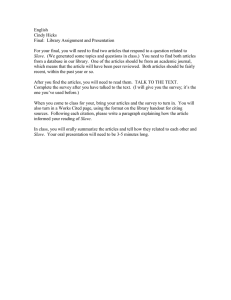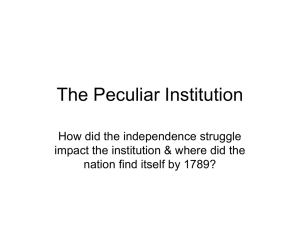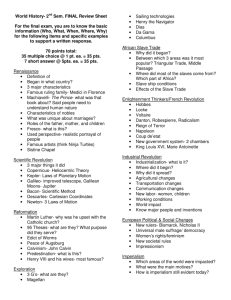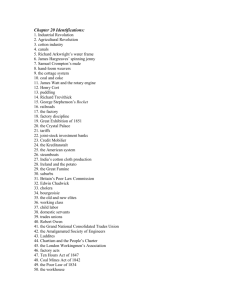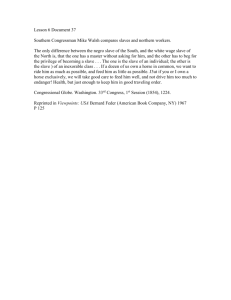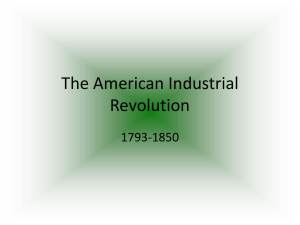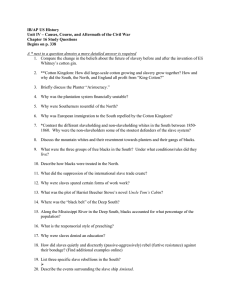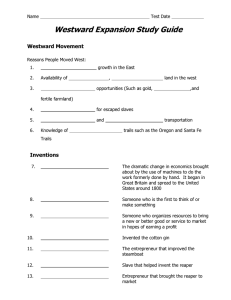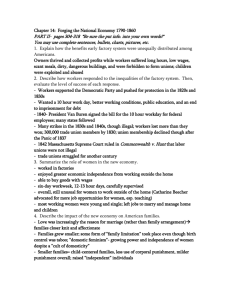Chapter 11 Vocabulary
advertisement
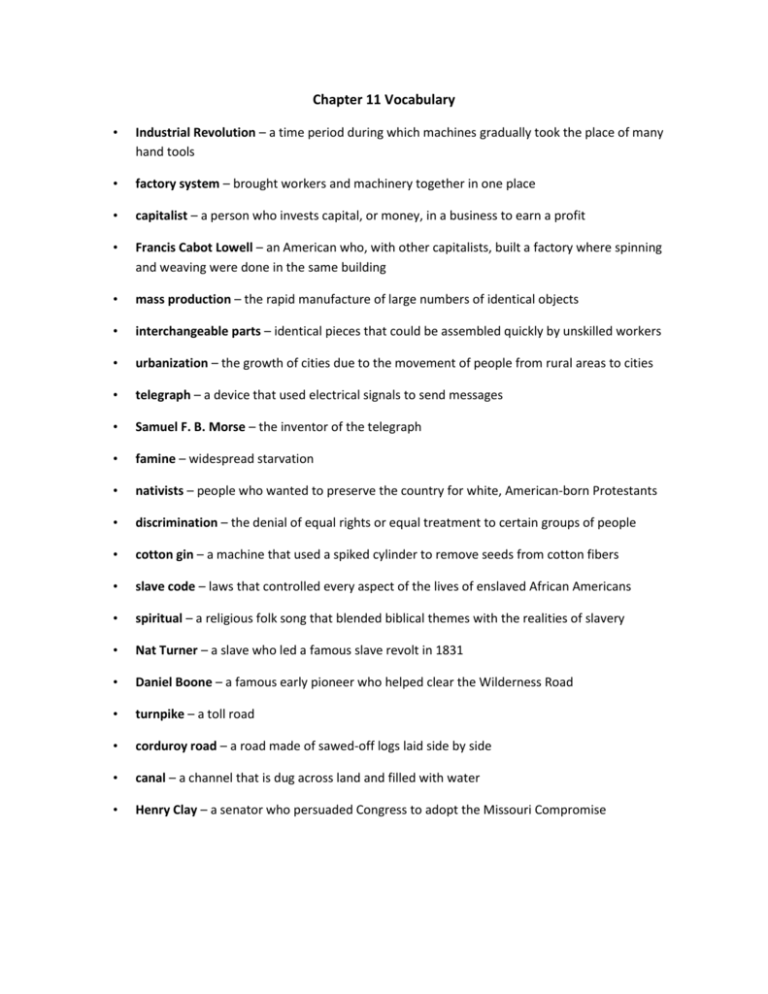
Chapter 11 Vocabulary • Industrial Revolution – a time period during which machines gradually took the place of many hand tools • factory system – brought workers and machinery together in one place • capitalist – a person who invests capital, or money, in a business to earn a profit • Francis Cabot Lowell – an American who, with other capitalists, built a factory where spinning and weaving were done in the same building • mass production – the rapid manufacture of large numbers of identical objects • interchangeable parts – identical pieces that could be assembled quickly by unskilled workers • urbanization – the growth of cities due to the movement of people from rural areas to cities • telegraph – a device that used electrical signals to send messages • Samuel F. B. Morse – the inventor of the telegraph • famine – widespread starvation • nativists – people who wanted to preserve the country for white, American-born Protestants • discrimination – the denial of equal rights or equal treatment to certain groups of people • cotton gin – a machine that used a spiked cylinder to remove seeds from cotton fibers • slave code – laws that controlled every aspect of the lives of enslaved African Americans • spiritual – a religious folk song that blended biblical themes with the realities of slavery • Nat Turner – a slave who led a famous slave revolt in 1831 • Daniel Boone – a famous early pioneer who helped clear the Wilderness Road • turnpike – a toll road • corduroy road – a road made of sawed-off logs laid side by side • canal – a channel that is dug across land and filled with water • Henry Clay – a senator who persuaded Congress to adopt the Missouri Compromise

